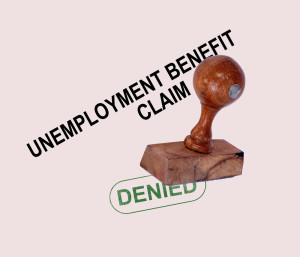The loss of a job can have a devastating effect on people and their families, particularly in the current economy. Losing a job can mean facing several issues while trying to qualify for unemployment benefits. If you lose your job, it is important to apply for unemployment benefits immediately – whether you quit or were fired. There are three requirements to receive unemployment benefits in New Jersey:
- You must have earned enough income from employment, either at your last or prior job(s), to qualify for benefits;
- You must not have voluntarily quit without good cause; and
- You must not have been fired because of “misconduct.”
Quitting a Job
In most cases, you cannot receive unemployment benefits after voluntarily quitting a job. However, there are exceptions when you have a good reason for quitting and therefore, you may be eligible for unemployment benefits. Some of these exceptions include:
- A substantial change in terms of employment (hours or shifts worked, change in pay, location, or the type of work you do);
- Unsafe, unlawful, intolerable, or detrimental working conditions;
- Personal health issues or the need to care for an ill family member.
Sometimes, it is not completely clear whether you quit your job or were fired. If you were fired, unfortunately it is not uncommon for an employer to claim you have quit. In this case, you will have to show that you did not quit your job. A lawyer is strongly recommended to help you establish your eligibility. To avoid confusion, it is important to clearly state to your employer that you are not quitting your job and will leave only if the employer is indeed firing you – and have a witness, if possible. Before leaving, demand your employer put in writing that you were fired and did not in fact quit.
Getting Fired From a Job
Whether or not you are eligible for unemployment benefits after quitting a job depends on the specific circumstances of your situation. You should receive benefits unless your employer shows that you were fired for misconduct, which describes certain types of particularly uncooperative behavior. New Jersey has two types of misconduct – “simple misconduct”, which delays the payment of benefits for 8 weeks, and “severe misconduct”, which results in a total disqualification. Misconduct requires proof that the employee acted willfully and deliberately in disregard of an employer’s interest. Severe misconduct includes acts of dishonesty and repeated misconduct after warning. Employers often challenge unemployment because every claim granted raises the overall unemployment tax that an employer is required to pay. As a result, many employers will hire attorneys or third party administrators who will fight hard to have you disqualified. Having an attorney with you at the fact-finding or appeal hearing will even the odds and give you a fair chance to demonstrate that you did not engage in misconduct.
Don’t be caught without representation. If you think you may be unfairly denied unemployment benefits, it’s important to contact an experienced lawyer to get the benefits you deserve. Contact Schorr & Associates, P.C., unemployment lawyers in NJ at 856-874-9090.